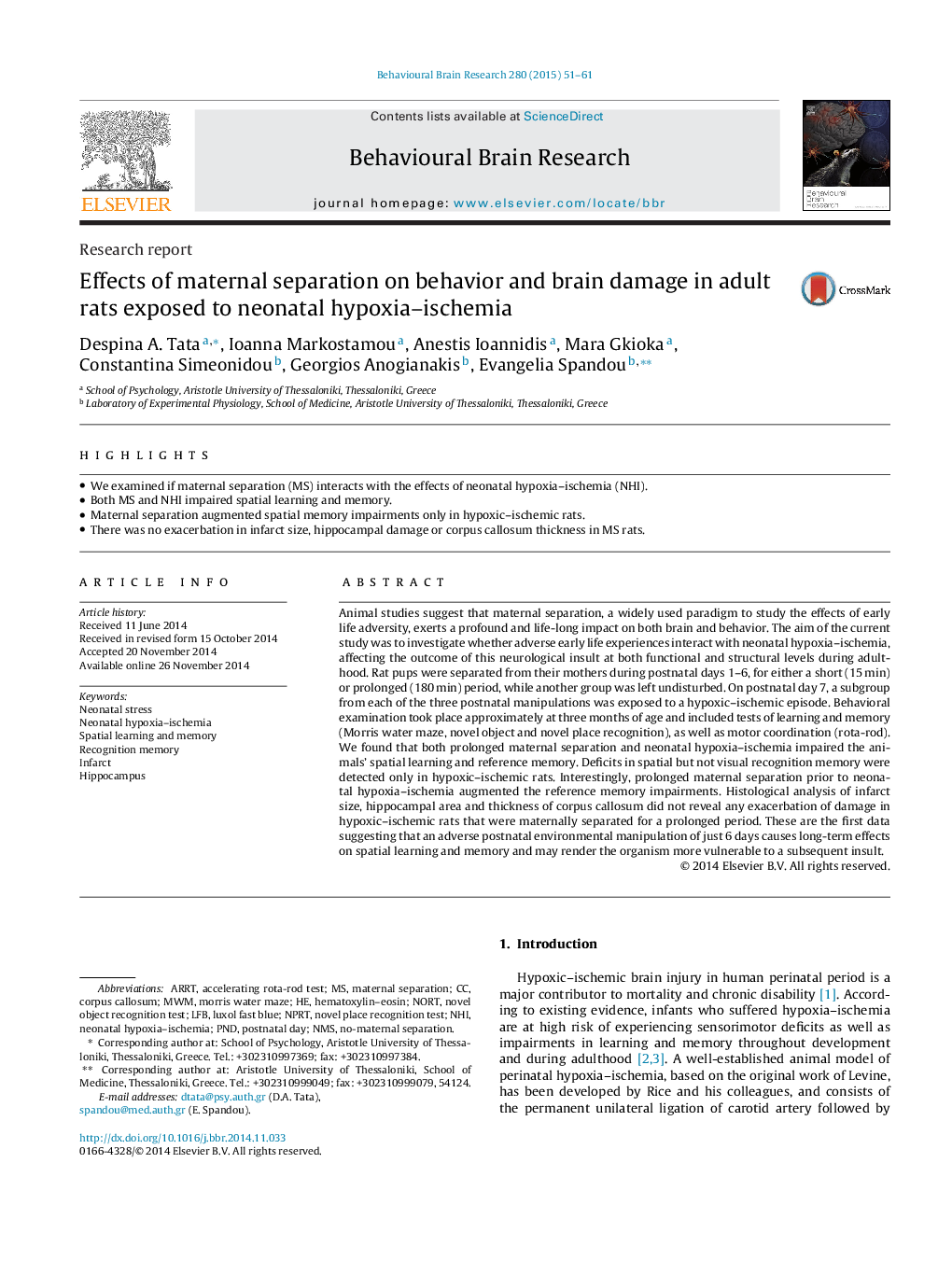| کد مقاله | کد نشریه | سال انتشار | مقاله انگلیسی | نسخه تمام متن |
|---|---|---|---|---|
| 6256839 | 1612952 | 2015 | 11 صفحه PDF | دانلود رایگان |
- We examined if maternal separation (MS) interacts with the effects of neonatal hypoxia-ischemia (NHI).
- Both MS and NHI impaired spatial learning and memory.
- Maternal separation augmented spatial memory impairments only in hypoxic-ischemic rats.
- There was no exacerbation in infarct size, hippocampal damage or corpus callosum thickness in MS rats.
Animal studies suggest that maternal separation, a widely used paradigm to study the effects of early life adversity, exerts a profound and life-long impact on both brain and behavior. The aim of the current study was to investigate whether adverse early life experiences interact with neonatal hypoxia-ischemia, affecting the outcome of this neurological insult at both functional and structural levels during adulthood. Rat pups were separated from their mothers during postnatal days 1-6, for either a short (15Â min) or prolonged (180Â min) period, while another group was left undisturbed. On postnatal day 7, a subgroup from each of the three postnatal manipulations was exposed to a hypoxic-ischemic episode. Behavioral examination took place approximately at three months of age and included tests of learning and memory (Morris water maze, novel object and novel place recognition), as well as motor coordination (rota-rod). We found that both prolonged maternal separation and neonatal hypoxia-ischemia impaired the animals' spatial learning and reference memory. Deficits in spatial but not visual recognition memory were detected only in hypoxic-ischemic rats. Interestingly, prolonged maternal separation prior to neonatal hypoxia-ischemia augmented the reference memory impairments. Histological analysis of infarct size, hippocampal area and thickness of corpus callosum did not reveal any exacerbation of damage in hypoxic-ischemic rats that were maternally separated for a prolonged period. These are the first data suggesting that an adverse postnatal environmental manipulation of just 6 days causes long-term effects on spatial learning and memory and may render the organism more vulnerable to a subsequent insult.
Journal: Behavioural Brain Research - Volume 280, 1 March 2015, Pages 51-61
